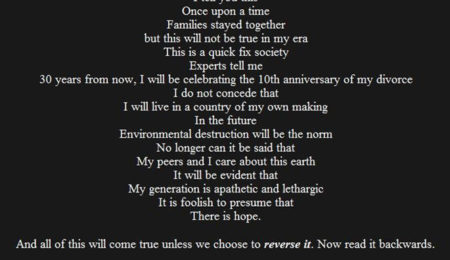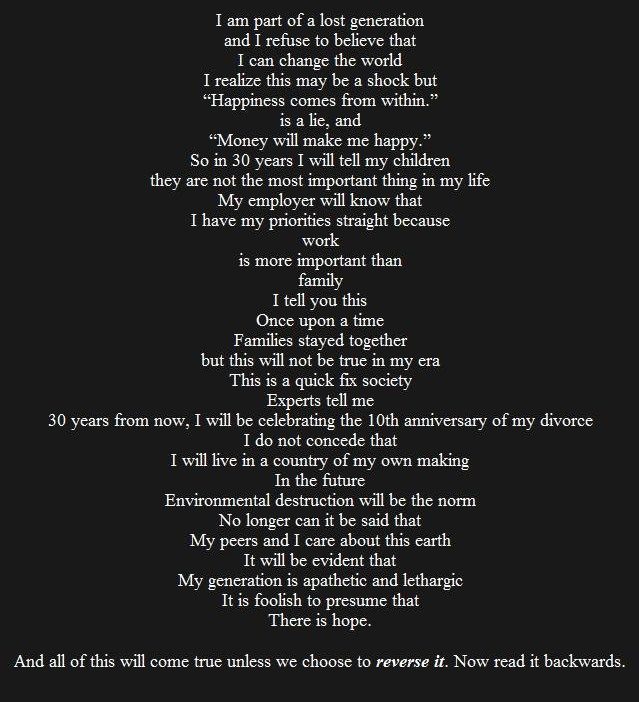There is a Poem Called “The Lost Generation” Which Could be Read Backwards to Get Exactly Opposite Meaning

The poem The Lost Generation was written by Jonathan Reed as an entry for the AARP‘s U@5o video contest launched on YouTube in August 2007. AARP, American Association of Retired Persons, is a non-profit organization that helps people above 50 have independence, choice and control in their lives that are beneficial and affordable. The contest was about creating a two minute video that would describe the contestants’ vision of how their lives are going to be in the future when they are 50 years old. It was aimed at people between 18 and 30 years of age with a goal of encouraging intergenerational dialogue to enable young people to speak their minds about the future.
Jonathan Reed of Georgia State University in Atlanta, Georgia, won the second place in the contest. The uniqueness of the poem is that it turns a pessimistic view of the world into something hopeful and optimistic if we only cared to look at it in a different way – that is just simply read it backwards.
When read backwards, the poem turns into an optimistic view.
There is hope.
It is foolish to presume that
My generation is apathetic and lethargic.
It will be evident that
My peers and I care about this Earth.
No longer can it be said that
Environmental destruction will be the norm.
In the future,
I will live in a country of my own making.
I do not concede that
Thirty years from now, I will be celebrating the tenth anniversary of my divorce.
Experts tell me
This is a quick fix society
But this will not be true in my era.
Families stayed together
Once upon a time
I’ll tell you this:
Family
Is more important than
Work
I have my priorities straight because
My employer will know that
They are not the most important thing in my life.
So in thirty years, I will tell my children
“Money will make me happyâ€
Is a lie, and
“True Happiness comes from withinâ€
I realize this may be a shock, but
I can change the world.
And I refuse to believe that
I am part of a lost generation.
[sources: jewishjournal.com, aarp.org]
























